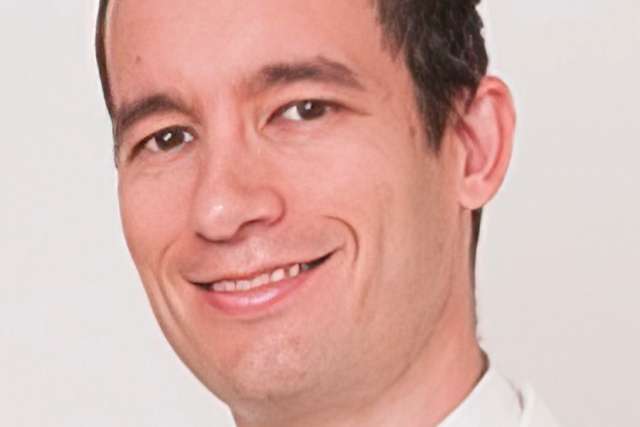Dr. Nicholas G. Nickols, an attending physician at the West LA VA and assistant professor of radiation oncology at the David School of Medicine, has been awarded the prestigious 2017 VALOR Young Investigator Award by the Prostate Cancer Foundation. The grant will advance his research in identifying the biological mechanisms that drive the spread of incurable prostate cancer in men with the disease.
The Prostate Cancer Foundation is the world’s leading philanthropic organization in the funding of prostate cancer research. With a primary focus on empowering future research leaders, the Young Investigator Award honors early career scientists who are focused on accelerating the development of life-extending and life-saving therapies for men living with prostate cancer. Nickols and his fellow 2017 Young Investigator awardees were selected from a pool of 123 applications across 75 institutions in 12 countries.
Prostate cancer is the most common non-skin cancer among men in the United States, and about one man in seven will be diagnosed with the disease during his lifetime. Almost 30,000 men in the United Stats die of this disease each year.
Nickols is conducting a trial combining surgery, stereotactic radiotherapy, and enhanced hormonal therapy in men with oligometastatic prostate cancer, a state of the disease in which the prostate cancer has five or fewer metastases. Primary tumors often develop in the prostate concurrently but only some will progress to metastatic disease. Nickols and his team will use genomic profiling of metastatic and primary tumors of patients in the trial to identify the specific biological features that promote metastasis, which is the critical event that makes prostate cancer incurable.
If successful, Nickols hopes the research will help scientists identify key features of potentially lethal primary prostate tumors and lead to the development of new ways to predict, treat and prevent metastasis in prostate and other cancers.
The $225,000 grant will provide support for office or lab space, equipment and staff, and three years of research support.




